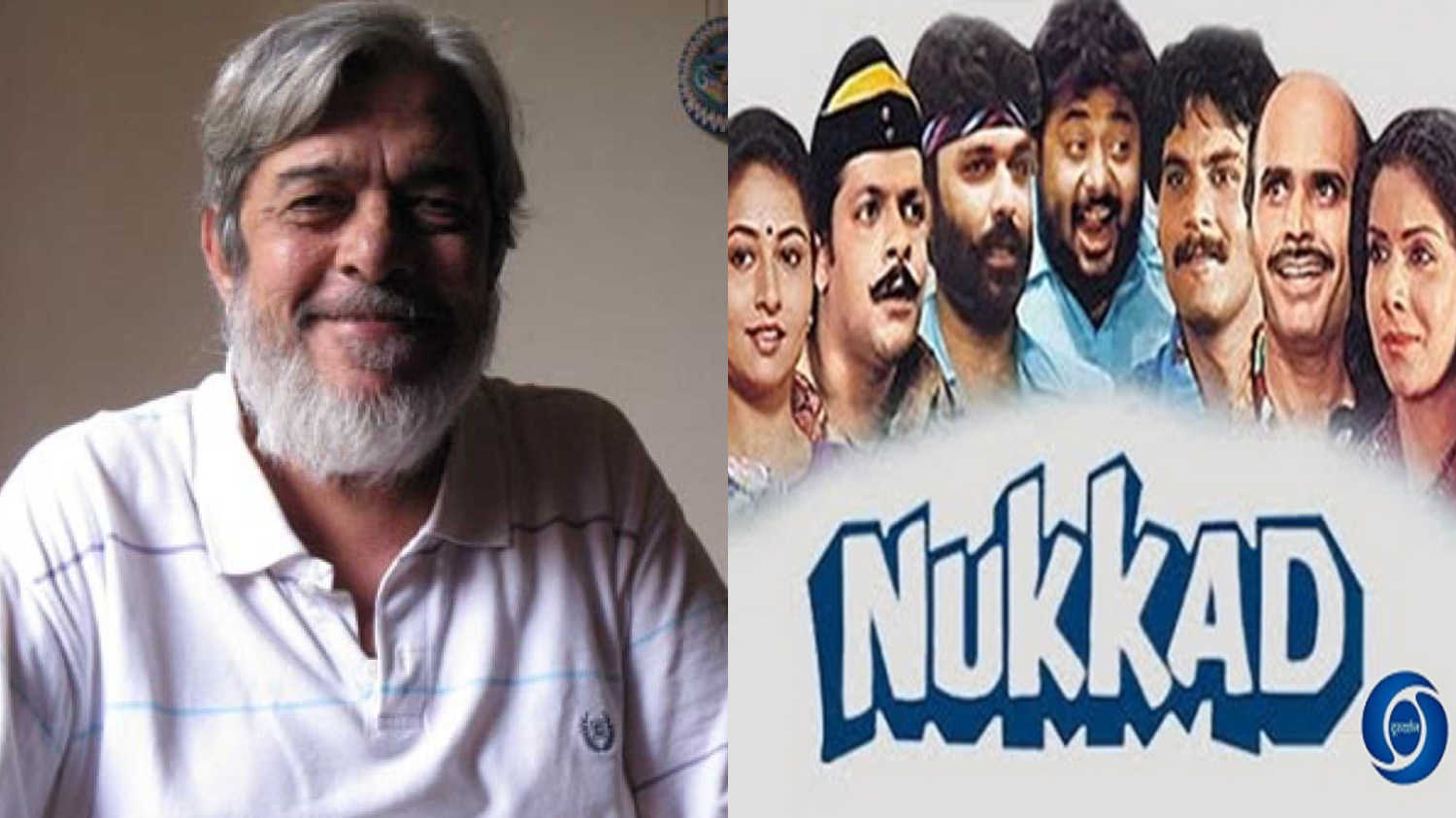The veteran filmmaker, who is part of a series called The Story Of Nukkad where he talks about his iconic Doordarshan serial, wonders why society is so much on edge today.
Nukkad focused on the 70% of our population that we don’t see, says Saeed Akhtar Mirza
Mumbai - 27 Sep 2020 7:30 IST
Updated : 17:13 IST


Keyur Seta
The popular Doordarshan serial Nukkad was first telecast back in 1986. After almost 35 years, director Saeed Akhtar Mirza revisited the show and what went into its making in the interview series The Story Of Nukkad on YouTube. It was director Kireet Khurana who proposed the idea to Mirza, his next-door neighbour for the past many years.
Mirza initially wasn’t sure about doing such a show. “I was amused because I wanted to know if it is still relevant," the filmmaker said in a conversation with Cinestaan.com. "But he seemed to feel that what we were seeing in those days was basically a more compassionate world. We were able to see the world from another point of view. He felt it’s so important for our times today. I said thank you very much, fine, we will do it.”
Nukkad revolved around a large group of everyday people, the sort you may find at any street corner (nukkad in Hindi) in a big Indian city. Each episode brought a different topic related to one or more of these characters.

Mirza said what set Nukkad apart from other shows was that it focused on the people, the majority of the population, who hardly get representation in popular culture and cinema. “It’s not the upper middle class at all," he said. "It was the middle class, lower middle class and the poor. This is 70% of the population of India, but we don’t see them. It’s surprising that most of our television programmes and films show people who are in the other 30%.”
Mirza pointed out that most TV shows tend to be aspirational. “They will show you what you don’t have," the maker of gems like Albert Pinto Ko Gussa Kyoon Aata Hai (1980) and Salim Langde Pe Mat Ro (1989) said. "Like a big house, a car, a pet dog, watches. They also show how a grandmother should look. All the grandmothers are so beautiful. Everything is upwards."
But he and co-director Kundan Shah went the other way. "We said we will talk about people because they matter. Forget how they look. To me that was incredibly important. To shift the entire thing to not aspirational but to make it human.”
Discussing the format of the show, he said, “We had 36 characters in the series. We had to give each person their due and a certain weightage. And simultaneously we had to create a world, a small little world that reflected the larger society outside.”
Mirza was glad that despite the different theme and approach, they didn’t face any trouble in getting Doordarshan on board. “There was a wonderful gentleman, Mr [SS] Gill, who was the secretary of the information and broadcasting ministry. He said he loved the idea and said go ahead.”
Kireet Khurana also made a documentary on Mirza titled Saeed Akhtar Mirza: The Leftist Sufi, which was released on Netflix last year. Mirza’s reaction was the same when Khurana proposed this idea. “I was quite amused, but I said fine, go ahead and do it, and he did it. And he has made a reasonably good documentary,” the septuagenarian said.
Asked about his rapport with his much younger neighbour, Mirza said, “It’s excellent. They look after us and take care of us. It’s so good to have him as a neighbour. He is like a son to me. He, his wife Tehzeeb and their son Kabeer are so helpful. In these COVID times we were looked after. And he is incredibly enthusiastic, friendly, gracious and lots of things.”
Though Mirza was not a prolific filmmaker, his work always focused on social issues through the eyes of ordinary people. Some of his other celebrated works are Arvind Desai Ki Ajeeb Dastaan (1978), Mohan Joshi Haazir Ho! (1984) and Naseem (1995).
Saeed Mirza believes society has changed quite a lot from the time in which he made these films, but he says that is normal. What he dreads is the conduct of the television news media and its agitated viewers. “Society has become far shriller today," he remarked. "Everything is like a battle. There is so much hate and anger. I don’t know what is going on. There is so much shouting and screaming on television news.”
The veteran pointed out that those demanding war to resolve various problems will never send their near and dear ones to do battle for the country. “All these anchors are great promoters of war and hate," he continued. "I often wonder what their nightmares or dreams are. Everybody seems to be wanting war, I don’t know why. They won’t have their children go to war. Those who will die will be the poor. I don’t know what they want to prove; their manhood and manliness?”
Mirza also questioned that continuous coverage of Sushant Singh Rajput’s death, purportedly by suicide, which has been on since the actor was found dead in his apartment in Bandra, Mumbai, on 14 June. “His death becomes so incredibly important! People are dying through COVID, there are people rotting in jail, there’s Article 370, there are migrant workers and joblessness. I can’t believe it. Which country are those people living in? Like I said, those 70% don’t matter.”


